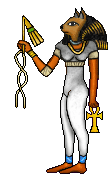 08-07-2003, 02:48 PM
08-07-2003, 02:48 PM
|
#39
|
Bastet - Egyptian Cat Goddess 
Join Date: September 5, 2001
Location: Calgary, AB
Age: 50
Posts: 3,491
|
Quote:
Originally posted by Yorick:
There ARE big problems with proportional representation.
1.Instability. The chances of there being no political party with a clear majority are much higher. Thus governments can be formed on the basis of fragile and often ideologically contradictory alliances.
Having a minority is not always a bad thing and is often preferable as parties must cooperate. With a majority things are getting passed through weather the real people want them or not as majority governments can be hard to keep in check.
2.Disproportionate voice. Minority parties end up having a disproportionate voice in matters of government. A small party elected on a "legalize guns platform" can get a minority view enacted a slaw, because of the necessity of dealmaking in a proportionate rep. system.
Dealmaking happens in the other system as well that is why it is called politics, if MPs are doing their job they will follow what their constituents want. As well an extra parties can act as a deciding factor on desions.
3.Increase in influence of extremist and racist parties. The precedent in Europe speaks for itself. Exhibit A. The rise of the far right. La Penn et al.
Extremist and racist parties can pop up even in a two tired system. They are rare in both democratic systems.
4.You cannot vote for who you DON'T want.
Under a two-party-preferred system of preferential voting, you vote for who you want, but by listing preferences also vote for who you DON'T want. Consequently the horrifying result in France of them having to pick between two unsavoury characters would not have occurred under a TPP preferential system. It means three popular personalities that split a democratic vote cannot be outdone by one personality taking the extremist vote. THe three democrats can place the totalitarian LAST on their recommended preferences.
In a two party there is little choice what if you don't like either party, you don't get to vote you don't have representation or political freedom.
This was how Pauline Hanson - the highly racist ignoramus from Australia - was defeated and wiped out of Australian politics. Every party put her last on their recommended preferences and her party was demolished.
Australia, like the US has an elected Senate. An upper house that gives each state a greater voice, not as reliant on population size. THe Senate, as it turns out, has a measure of proportional representation. So minority parties do get an important voice, but it doesn't impact on the ability of a government to govern with stability.
|
My point is there are pros and cons of both systems and much depends on other dynamics.
|

|

|